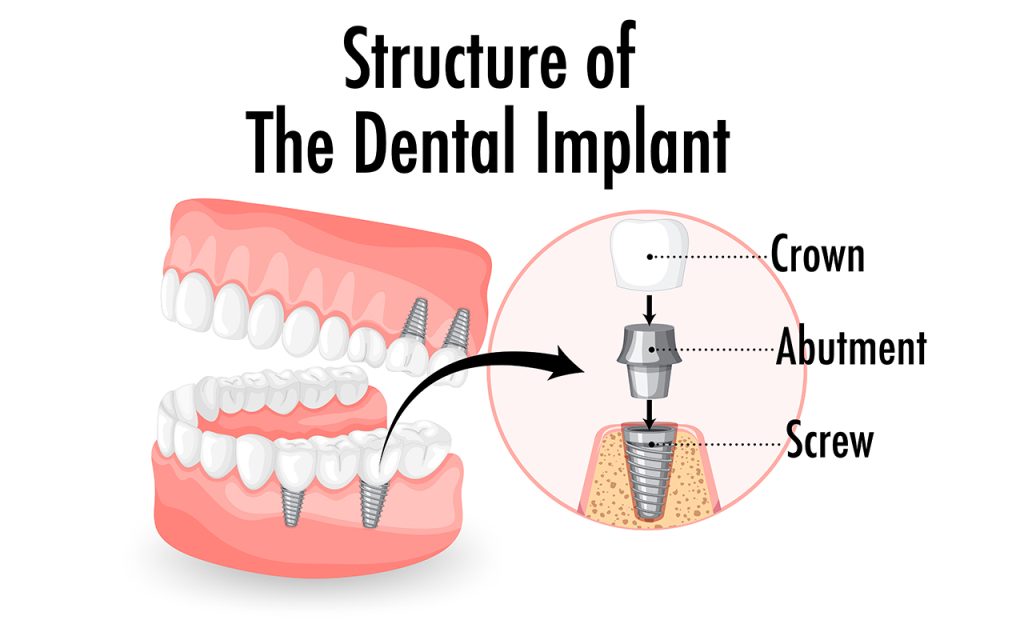Your Teeth, Your Health: 8 Signs You Need Dental Implants for a Better Life
Our teeth play a critical role in our daily lives, influencing not just how we eat and speak, but also how we feel about ourselves. Yet, many people overlook the health of their teeth until problems arise. In this article, we’ll explore the eight significant signs that indicate you may need dental implants. These signs not only impact your dental health but also your overall well-being and quality of life. If you’ve experienced any of the issues below, it may be time to consider dental implants as a solution.
Why Dental Health Matters
The importance of dental health goes beyond having a bright smile. Poor dental hygiene can lead to a variety of health issues, including heart disease, diabetes, and respiratory problems. The mouth is often seen as the gateway to the body, and when oral health is neglected, it can create a cascading effect on overall health. Therefore, understanding the signs that indicate you need dental implants is crucial not only for your dental health but your holistic health as well.
The Connection Between Teeth and Overall Health
Teeth aren’t just for show; they serve vital functions in our everyday lives. Healthy teeth help in efficiently breaking down food, which is essential for proper digestion and nutrient absorption. Furthermore, a strong set of teeth contributes to self-esteem and social interactions. Missing or damaged teeth can lead to psychological issues, making it essential to address any dental problems promptly.

Sign 1: Missing Teeth Affecting Your Smile
One of the most noticeable signs that you may need dental implants is the aesthetic impact of missing teeth. A gap in your smile can affect your confidence, making you less likely to smile or engage in social interactions. This can lead to feelings of self-consciousness and lower self-esteem.
Dental implants offer a permanent solution that not only restores your smile but also enhances your confidence. Unlike dentures, which can be uncomfortable and insecure, dental implants feel and function like natural teeth, allowing you to smile freely and confidently.
Sign 2: Difficulty Chewing or Eating
If you find yourself struggling to chew food or experiencing discomfort while eating, it could be a sign that you need dental implants. Teeth are crucial for proper digestion, and missing teeth can hinder this process, potentially leading to nutritional deficiencies.
With dental implants, you can regain your ability to enjoy a variety of foods without discomfort. Implants restore full chewing power, allowing you to savor your meals and maintain a balanced diet, which is essential for overall health.
Sign 3: Frequent Jaw Pain or Discomfort
Experiencing jaw pain or discomfort can be a sign of various dental issues, including misalignment due to missing teeth. This discomfort can affect your daily life, making it hard to focus on tasks and enjoy activities you once loved.
Dental implants can alleviate jaw pain by restoring proper alignment and function. This can lead to a significant decrease in discomfort and improve your overall quality of life.
Sign 4: Speaking Issues
Did you know that missing teeth can impact your ability to speak clearly? This can create communication barriers, leading to frustration and embarrassment. If you find yourself mumbling or slurring your words due to gaps in your smile, it’s a vital sign that you may need dental implants.
By opting for dental implants, you can improve your speech clarity. Implants function like natural teeth, allowing you to speak confidently and clearly without fear of slippage or discomfort.
Sign 5: Shifting Teeth or Gum Problems
When you have missing teeth, it can lead to shifting of the remaining teeth, which can cause further dental issues. This misalignment can create gum problems, leading to inflammation and periodontal disease.
Dental implants can help prevent the shifting of teeth. By filling in the gaps, implants stabilize the remaining teeth and support your overall gum health, reducing the risk of future dental issues.
Sign 6: Low Self-Esteem or Social Withdrawal
Missing teeth can significantly affect your self-esteem and social interactions. You may find yourself withdrawing from social situations because you’re embarrassed about your smile. This can lead to feelings of isolation and impact your mental health.
Getting dental implants can be a transformative experience. Not only do they restore your smile, but they also improve your self-esteem and encourage you to engage more fully in social activities, leading to a more fulfilling life.
Sign 7: Teeth Grinding or Clenching
Bruxism, or teeth grinding, is often linked to stress and can be exacerbated by missing teeth. Grinding can lead to tooth wear, jaw pain, and headaches. If you find yourself grinding your teeth at night, it may signal a need for a solution like dental implants.
Dental implants can help address the root causes of bruxism by restoring your bite alignment and function. With a proper bite, you may experience less grinding and associated discomfort, leading to improved overall health.
Sign 8: You’re Tired of Dentures
Many people find dentures uncomfortable, inconvenient, or even embarrassing. If you’re tired of dealing with the hassle of dentures, it might be time to consider dental implants. Dentures can slip, require adhesives, and need constant adjustments, which can be frustrating.
Dental implants offer a permanent solution that behaves like natural teeth. They provide a stable, secure fit that allows you to eat, speak, and smile without fear of slippage. This game-changing option can drastically improve your quality of life.

Dental Tourism: A Great Option for Dental Implants
For those considering dental implants, dental tourism has become an increasingly popular option. This involves traveling to another country for dental procedures, often at a fraction of the cost you would pay at home. Locations like Mexico, Costa Rica, and Hungary are known for their high-quality dental care and experienced professionals.
What is Dental Tourism?
Dental tourism refers to the practice of going abroad for dental work. Many countries offer advanced dental technologies and skilled practitioners at lower prices than those found in the United States or Canada. This option can be particularly appealing for those needing extensive dental work, like implants.
Benefits of Traveling for Dental Implants
Choosing dental tourism can lead to significant savings, allowing you to receive quality dental care without breaking the bank. Additionally, many dental tourism destinations offer beautiful surroundings, enabling you to combine your dental visit with a vacation. This makes the experience less daunting and more enjoyable.
Conclusion
Dental implants can significantly improve your quality of life, addressing various issues caused by missing teeth. From restoring your smile and confidence to enhancing your eating and speaking abilities, the signs indicating you need dental implants are not to be ignored. If you’ve identified with any of the signs discussed, consider exploring dental implants as an effective solution.
Incorporating dental implants into your life can lead to better health, greater confidence, and enhanced enjoyment in daily activities. Don’t let dental issues hold you back from living your best life!
FAQs
1. Are dental implants painful?
Most patients report only mild discomfort during the procedure. Anesthesia is used to minimize pain, and recovery time is generally quick.
2. How long do dental implants last?
With proper care, dental implants can last a lifetime. Routine dental hygiene and regular check-ups are essential for longevity.
3. What are the costs associated with dental implants?
The cost can vary widely based on location and the complexity of the procedure but is often seen as a worthwhile investment due to their longevity.
4. Can anyone get dental implants?
Most adults are candidates for dental implants, but a thorough examination by a dentist is necessary to determine individual eligibility.
5. How do I care for my dental implants?
Caring for dental implants is similar to caring for natural teeth: brush twice daily, floss, and visit your dentist regularly.

